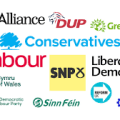Transform Democracy
Objective & Focus Area
Primary Objective
Political Ambitions
Glimpse Into The Future
Desired Outcomes
Accountability,Balance,Choice
Location or Area Impacted
Address
Oxford, Oxfordshire, England, United Kingdom
Next Steps
Help Needed
Collaboration, Publicity, Debate, Public Support, Political Change
Other Help Options
Like or Dislike Listing, Review Listing, Share Listing, Offer Help & Support, Invite Others
Next Steps
Do you believe in a democracy that works for everyone? Join us in advocating for these transformative reforms. Together, we can reshape the UK’s political future and give power back to the people.
Post Review
Login to Write Your ReviewThere are no reviews yet.







